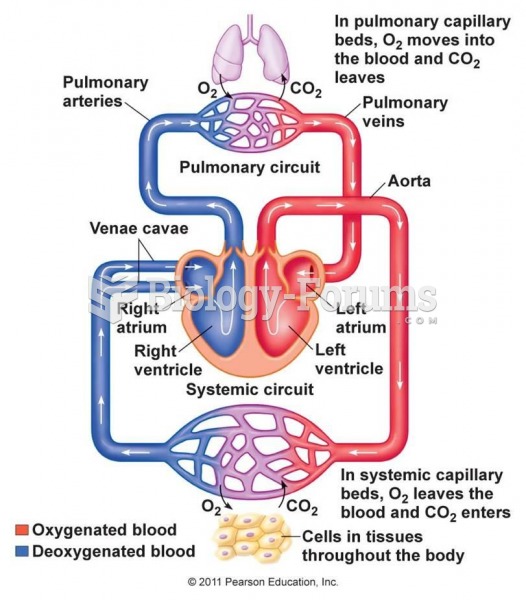|
|
|
The first oncogene was discovered in 1970 and was termed SRC (pronounced "SARK").
Drying your hands with a paper towel will reduce the bacterial count on your hands by 45–60%.
In inpatient settings, adverse drug events account for an estimated one in three of all hospital adverse events. They affect approximately 2 million hospital stays every year, and prolong hospital stays by between one and five days.
According to the American College of Allergy, Asthma & Immunology, more than 50 million Americans have some kind of food allergy. Food allergies affect between 4 and 6% of children, and 4% of adults, according to the CDC. The most common food allergies include shellfish, peanuts, walnuts, fish, eggs, milk, and soy.
On average, someone in the United States has a stroke about every 40 seconds. This is about 795,000 people per year.







